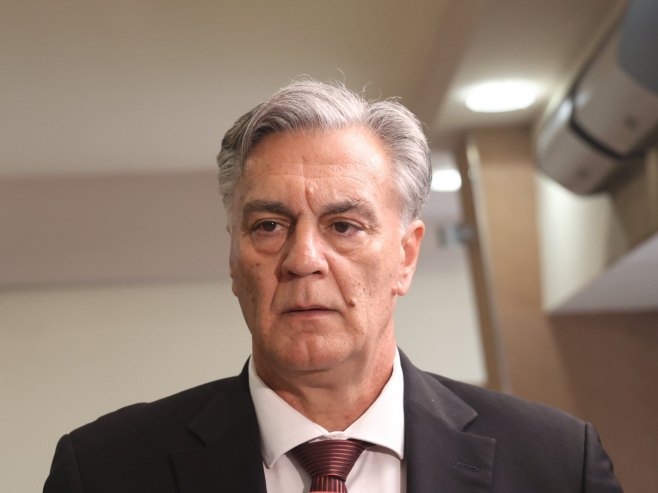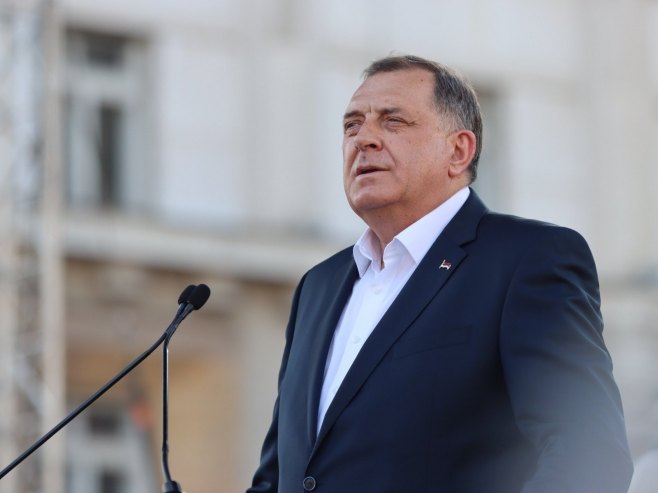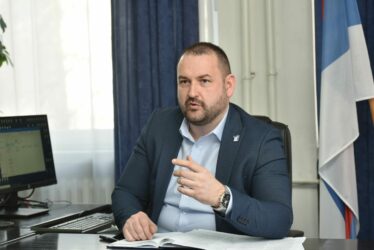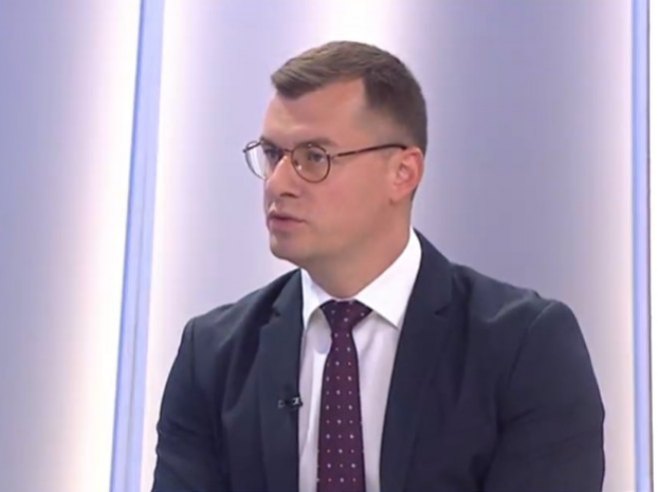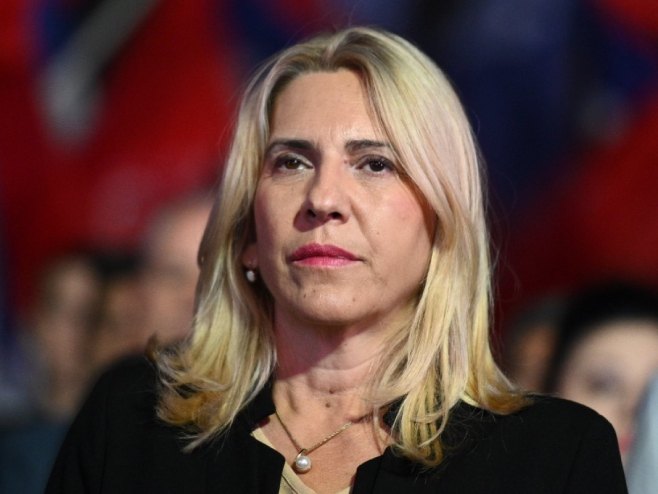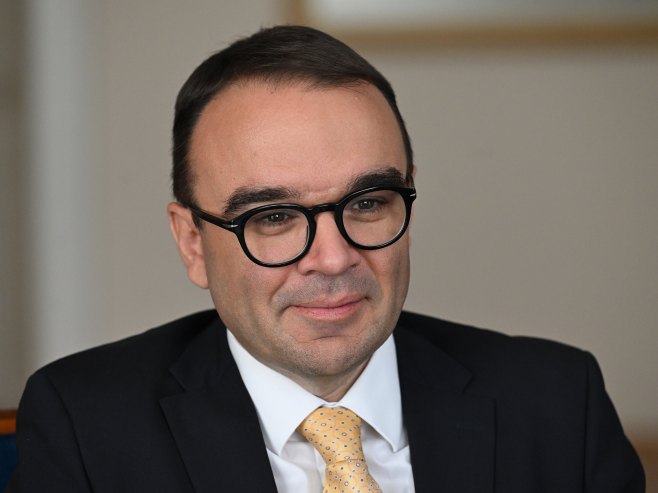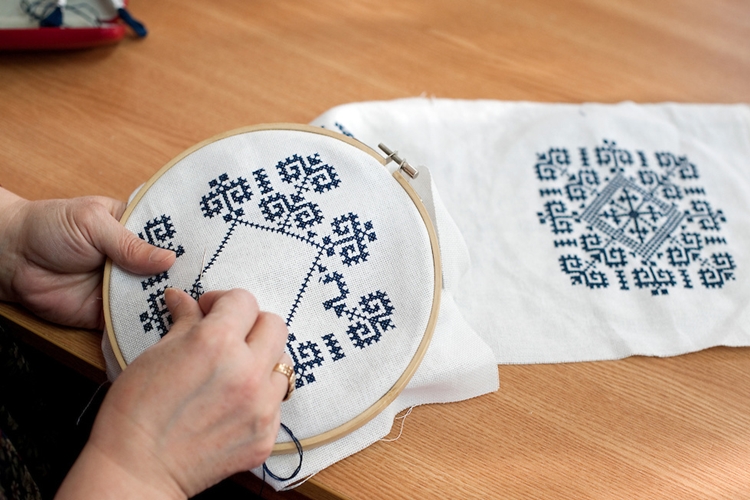The Hague Tribunal was meant to deliver justice and reconciliation—but none of that has been achieved. No one has been convicted for the persecution of 200,000 people, emphasized Viktor Nuždić, acting director of the Republic Center for War Research, during his appearance on RTRS’s Morning Program.
This evening’s memorial academy, organized by the heritage association Petrovačka cesta under the title Truth on the Road of Suffering – 30 Years Later, marks the beginning of commemorations for the 1995 expulsion of Serbs from Croatia.
The event will take place at 6 p.m. in the Small Hall of the Banski Dvor Cultural Center in Banja Luka.
Nuždić and Boban Lipić from the Petrovačka Cesta Association spoke on the program about the upcoming academy and the crimes for which, even after 30 years, no one has been punished.
Nuždić emphasized that the victims have never received recognition, and that what happened was not a “victorious military operation” but a grave crime committed against the Serbs.
“Unfortunately, the entire summer is marked by a series of events in which Serbs suffered. We must never forget that from 1941 to 1945, genocide was committed against Serbs in the territory of the NDH. In the early 1990s, the same ideologies reappeared, and Serbs were once again confronted by the descendants of those who committed atrocities in Jasenovac, Prebilovci, Drakulić, Motike, and other places,” said Nuždić.
He recalled that the 1990s saw the emergence of an ideology whose primary goal was to expel everything Serb from those areas, and what the NDH failed to complete—modern-day Croatia did.
“Today, the number of Serbs living in Croatia is significantly lower, which is no surprise. Since Operation ‘Storm’, we’ve witnessed constant marginalization—from the attacks on Cyrillic script to the new cemetery laws, which signal clearly that Serbs are not welcome in Croatian society. Sadly, this is nothing new. Where there is no punishment, ideology—not justice—prevails. The Hague Tribunal was supposed to bring justice and reconciliation, yet no one has been held accountable for the persecution of 200,000 people,” Nuždić stressed.
He added that hope is slowly fading—due to biology. Veterans are dying, and victims are passing away without ever seeing justice.
“The same pattern seen in The Hague is continuing here in BiH, particularly in Republika Srpska. We must remember that ‘Operation Storm’ didn’t end in Croatia—it continued with the occupation of 13 municipalities in western Krajina. These centuries-old Serb lands were taken, and that continuation confirmed our people’s shared destiny and repeated trauma,” Nuždić said.
Petrovačka cesta, he added, is a symbol of Serb suffering in both Krajinas. The crime remains entirely unpunished.
“Croatia is a member of the European Union that promotes understanding and empathy, yet how can such a crime go unpunished? Serbs were the designated culprits even before the war began, and the political courts have merely legitimized the resulting situation. Apparently, European values don’t apply when Serbs are concerned. Just recently we witnessed a concert by Thompson glorifying Ustasha ideology—with no clear condemnation. Clearly, double standards are at play,” Nuždić said.
Regarding the Petrovačka cesta case, Nuždić recalled that Serbia had pledged to prosecute those responsible, but the pilots involved are being tried in absentia.
“History repeated itself—except that back then it was German planes, and in the 1990s, it was Croatian ones. Children died in these attacks. They were innocent, and nothing can justify what happened. A similar attack was repeated just days later on the Prijedor road,” he emphasized.
Boban Lipić, from the Petrovačka cesta heritage association, said the organization’s mission is to preserve the memory of the victims and ensure the truth is never forgotten.
“I witnessed that tragedy. I was a child. When I heard the jets overhead, I saw people panicking. I wanted to see what happened and found a horrific scene—body parts scattered everywhere. I’ll never forget the smell of gunpowder and fuel. People had brought cans of food to survive, and the attackers thought it was ammunition. Not a night goes by that I don’t remember it,” Lipić said.
The association continues its work. So far, they have organized two major efforts: distributing holiday packages at Christmas in the Krajina region (Petrovac, Drvar, Ključ, Grahovo, Glamoč, Bihać), and again at Easter. The next commemoration will begin on August 7 at the actual site of the attack, with a candle-lighting ceremony and speeches by officials in Drinić.
Source: RTRS
